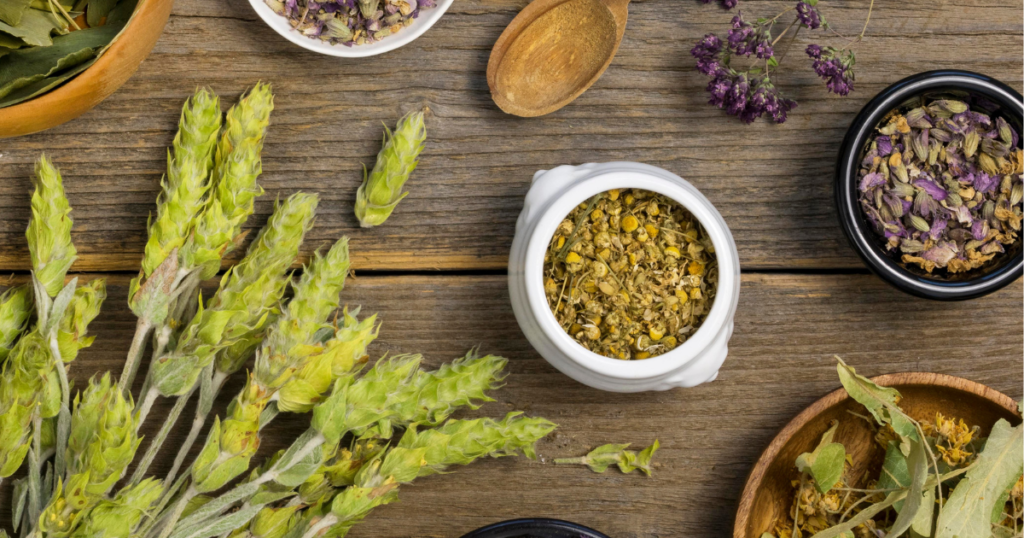When it comes to natural remedies, herbs have always played a significant role in traditional and modern medicine. Across the globe, people rely on certain herbs for their healing and health-boosting properties. From reducing inflammation to boosting immunity, these natural wonders are nothing short of miraculous. Today, we’re diving into 10 of the most commonly used herbs for medicinal purposes, including the mighty Shilajit.
1. Shilajit – The Himalayan Wonder
Shilajit, often referred to as the “conqueror of mountains,” is a tar-like substance found primarily in the rocks of the Himalayas. Rich in minerals and fulvic acid, Shilajit has been used in Ayurvedic medicine for centuries.
Health Benefits of Shilajit
Shilajit is known for its rejuvenating effects. It’s a natural energy booster, promotes mental clarity, and enhances stamina. It also helps improve bone health, reduces anxiety, and supports a healthy immune system.
How to Use Shilajit
Shilajit comes in resin or powder form. A small pea-sized amount can be dissolved in warm water or milk and consumed once a day for its potent benefits. Make sure you get it from a reputable source!
2. Turmeric – The Golden Spice
Turmeric has earned its title as a superfood due to its powerful anti-inflammatory and antioxidant properties. Curcumin, the active compound in turmeric, is what gives it its bright yellow color and its medicinal value.
Turmeric for Inflammation
Turmeric is excellent at reducing inflammation in the body, making it a favorite for people dealing with arthritis or chronic pain. It’s also linked to better brain health and improved heart function.
Best Ways to Take Turmeric
You can incorporate turmeric into your diet by adding it to soups, smoothies, or teas. For maximum absorption, combine it with black pepper and a healthy fat like coconut oil.
3. Ginger – A Natural Healer
Ginger is a popular root known for its healing abilities. Packed with bioactive compounds, ginger has been used to treat nausea, colds, and digestive issues.
Ginger for Digestion and Nausea
Ginger is one of the best remedies for an upset stomach or nausea. Whether you’re dealing with morning sickness or indigestion, ginger can help soothe your digestive system.
How to Include Ginger in Your Diet
You can make ginger tea by boiling fresh slices in water, adding it to stir-fries, or even blending it into smoothies for an extra kick.
4. Ashwagandha – The Stress Reliever
Ashwagandha is an adaptogenic herb that helps the body manage stress. Often used in Ayurvedic medicine, it has a calming effect on the mind and body.
Ashwagandha for Mental Health
Ashwagandha is known for its ability to reduce stress and anxiety. It can also improve cognitive function and support overall brain health.
Different Forms of Ashwagandha
You can find Ashwagandha in powder, capsule, or tincture form. It’s typically taken before bed to promote relaxation and restful sleep.
5. Garlic – Nature’s Antibiotic
Garlic is more than just a flavor booster for your food. It has potent medicinal properties, especially when it comes to boosting your immune system.
Garlic for Heart Health
Garlic is excellent for heart health as it helps lower cholesterol levels, reduces blood pressure, and improves circulation.
How to Consume Garlic for Maximum Benefits
For the best health benefits, consume garlic raw. You can mince a clove and add it to salad dressings, sauces, or simply swallow it with water.
6. Holy Basil – The Immune Booster
Holy Basil, also known as Tulsi, is revered in Ayurvedic practices for its ability to boost the immune system and promote overall wellness.
Holy Basil for Respiratory Health
Holy Basil is particularly good for respiratory health. It helps clear the lungs and fights against infections like the common cold and bronchitis.
How to Make Holy Basil Tea
To make Holy Basil tea, simply steep fresh or dried basil leaves in hot water for 5–10 minutes. It’s a soothing drink with tons of health benefits.
7. Ginseng – The Energy Enhancer
Ginseng is an ancient herbal remedy known for its energy-boosting properties. It helps improve mental clarity, physical stamina, and resilience to stress.
Ginseng for Stamina and Vitality
Ginseng increases stamina and helps the body fight off fatigue, making it a favorite for athletes and those with physically demanding jobs.
How to Take Ginseng Supplements
Ginseng is typically taken as a capsule or in powdered form. Start with a low dose and gradually increase as needed.
8. Aloe Vera – The Skin Savior
Aloe Vera is widely recognized for its skin-soothing properties. But its benefits don’t stop there—it also aids in digestion and boosts immunity.
Aloe Vera for Healing and Hydration
Aloe Vera is packed with vitamins and antioxidants, making it a go-to for healing burns, cuts, and even acne. Its hydrating properties are great for skin health.
Applying Aloe Vera Gel
Simply apply Aloe Vera gel directly to the skin to soothe irritations or burns. You can also drink Aloe Vera juice for digestive benefits.
9. Peppermint – The Digestive Aid
Peppermint is commonly used to relieve digestive issues like bloating and gas. It’s also known for its refreshing taste and aroma.
Peppermint for Stomach Upsets
Peppermint helps to relax the muscles in your digestive tract, making it great for relieving bloating and stomach cramps.
Best Ways to Use Peppermint
Peppermint can be consumed as a tea, taken in capsule form, or used as an essential oil for topical application.
10. Echinacea – The Cold Fighter
Echinacea is a popular herb known for its immune-boosting properties, especially in preventing and treating colds.
Echinacea for Immune System Support
Echinacea strengthens the immune system, helping the body fend off infections like the common cold and flu.
How to Take Echinacea for Best Results
You can take Echinacea in tincture, capsule, or tea form. It’s best used at the first sign of a cold to maximize its effectiveness.
Conclusion
Herbs have stood the test of time as natural healers. Whether you’re looking to boost your immune system, improve your mental clarity, or soothe your digestive system, these ten herbs offer powerful medicinal benefits. Incorporating them into your daily routine can lead to improved health and well-being.
FAQs
1. What is the best way to take Shilajit?
The best way to take Shilajit is by dissolving a pea-sized amount in warm water or milk and drinking it daily.
2. How does turmeric help with inflammation?
Turmeric contains curcumin, which has strong anti-inflammatory properties, making it great for conditions like arthritis.
3. Can garlic improve heart health?
Yes, garlic helps reduce cholesterol levels and improves circulation, making it beneficial for heart health.
4. How often should I drink peppermint tea?
You can drink peppermint tea 1-2 times a day to help with digestion and soothe stomach issues.
5. Is Echinacea safe for long-term use?
Echinacea is generally safe for short-term use, especially during the cold season, but long-term use may not be recommended without consulting a healthcare professional.


